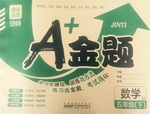题目内容
The new bike_____.
A. spent me fifty dollars
B. paid me thirty pounds
C. used me two hundred francs
D. cost me five hundred yuan
D
考查“某物花费某人……”的正确表达sth.cost sb…..。

练习册系列答案
 A加金题 系列答案
A加金题 系列答案 全优测试卷系列答案
全优测试卷系列答案
相关题目
题目内容
The new bike_____.
A. spent me fifty dollars
B. paid me thirty pounds
C. used me two hundred francs
D. cost me five hundred yuan
D
考查“某物花费某人……”的正确表达sth.cost sb…..。

 A加金题 系列答案
A加金题 系列答案 全优测试卷系列答案
全优测试卷系列答案